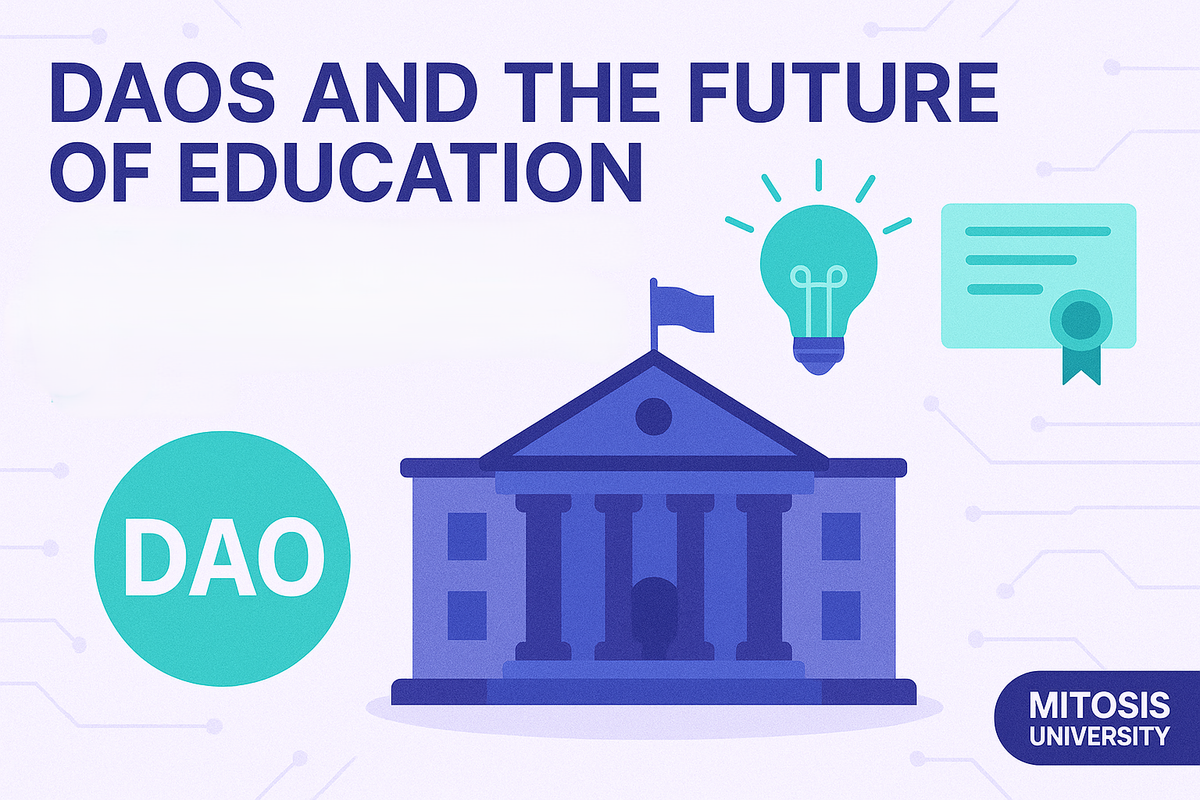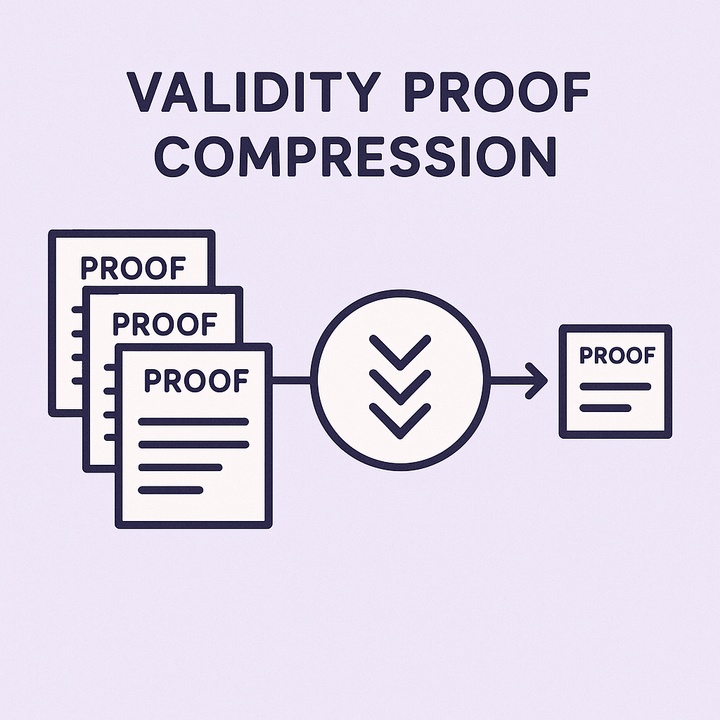DAOs and the Future of Education, Rethinking Universities, Learning Incentives, and Digital Credentials in 2025

What if students could vote on their curriculum, earn tokens for learning, and build their careers through community-driven platforms? In 2025, this isn’t just a futuristic fantasy—it’s becoming reality, thanks to the rise of Decentralized Autonomous Organizations (DAOs) in education.
As higher education continues to grapple with rising costs, outdated systems, and limited access, DAOs are offering a radical alternative: decentralized universities, tokenized learning rewards, and community-governed educational platforms. These innovations promise to break down barriers, boost transparency, and redefine the student experience.
In this article, we explore how DAOs are revolutionizing education in three major areas: decentralized universities, the "Learn → Contribute → Earn" model, and emerging platforms shaping this transformation.
Rethinking Higher Education: The Rise of Decentralized Universities
Flattening the Ivory Tower
Traditional universities are top-heavy, bureaucratic, and slow to adapt. DAOs offer a compelling alternative—flattened governance, community input, and faster curriculum evolution. By replacing rigid hierarchies with smart contracts and token-based decision-making, DAOs allow students, educators, and developers to collaboratively shape educational ecosystems.
For example, decentralized universities built on blockchain can automate credentialing, funding, and even course approvals, all while ensuring transparency and tamper-proof records. This creates an environment where trust is coded into the system, not handed down from above.
While total decentralization remains aspirational, hybrid models are gaining traction—combining community-driven innovation with centralized oversight for quality and compliance. These structures embrace decentralization as a spectrum, not a binary choice.
Addressing Systemic Failures
DAOs target three key pain points in education:
- Cost and Accessibility: Blockchain reduces administrative overhead and offers open access to learning resources, particularly in underserved regions.
- Credential Fraud: Immutable, blockchain-verified credentials replace paper degrees, simplifying verification for employers and institutions.
- Curriculum Relevance: Community co-creation of learning paths allows for rapid alignment with industry needs and local contexts.
Initiatives like Dorm DAO, UConn’s BittBridge, and USC Marshall’s Business of Blockchain demonstrate real-world applications of DAO models, offering student-led investment clubs, decentralized AI networks, and formal Web3 curricula. These cases show how universities are evolving from content providers into talent incubators for the Web3 economy.
The Learn → Contribute → Earn Model: Incentivizing Active Learning
From Passive Students to Token-Earning Contributors
The traditional model rewards memorization and grades. The "Learn → Contribute → Earn" (LCE) model flips that on its head—turning students into creators, mentors, and collaborators who are rewarded for their engagement and impact.
Powered by smart contracts and blockchain tokens, learners earn verifiable credentials and sometimes financial rewards by completing courses, creating content, reviewing peers, or mentoring others. This gamified structure not only enhances motivation but fosters a more dynamic and community-centered learning environment.
The emphasis on “karma” or reputation further reinforces collective intelligence. Contributions that benefit the whole—like helping others or improving course materials—are valued, not just individual achievements.
Tokens as Educational Fuel
In this model, tokens serve multiple roles:
- Proof of Learning: Immutable records of skills and milestones.
- Incentives: Rewards that can be exchanged for courses, mentorships, or even internships.
- Governance: Voting rights within educational DAOs, enabling students to help shape learning environments.
All of this creates a recursive loop—learning fuels contribution, which earns tokens, which unlocks more learning. It’s a self-sustaining cycle of growth and engagement.
But challenges remain. Platforms must avoid devaluing tokens through poor quality control, ensure equity across digital divides, and maintain security to protect credentials and funds.
Platforms Leading the Way: Who’s Building Education’s Future?
Who’s in the Arena—and Who’s Not
While some platforms like Mitosis are often mistakenly linked to educational DAOs, they serve financial infrastructure roles and are not active in decentralized education.
More relevant are:
- TalentLabs & talentDAO: Supporting blockchain education and DAO governance through research, onboarding strategies, and decentralized project squads. Their focus on combining learning with action aligns closely with the LCE model.
- EduDAO.io: Hosting hackathons, meetups, and career fairs to bridge university talent with Web3 industries. By 2025, it continues to play a key role in developing crypto-native leadership.
- eduDAO.org: A grassroots funding platform empowering local educational initiatives through community-driven governance.
- Open Campus DAO: Perhaps the most comprehensive platform, offering tokenized educational content, on-chain credentials, and its own Layer 3 EDU Chain. Its EDU Token powers everything from credentialing to revenue sharing among contributors.
These platforms reflect the diverse directions educational DAOs can take—from grassroots funding to industry-scale infrastructure.
Conclusion
DAOs are reshaping education from the ground up—transforming students into stakeholders, turning institutions into communities, and replacing static credentials with dynamic, verifiable records of lifelong learning.
Key Takeaways
- Decentralized universities offer flexible, transparent alternatives to bureaucratic systems—but will likely succeed through hybrid models.
- The LCE model aligns learning with contribution and economic incentive, creating a more active and inclusive student experience.
- Emerging platforms like Open Campus DAO and EduDAO are leading the charge, building the infrastructure and ecosystems needed for decentralized learning to thrive.
What Comes Next?
As blockchain adoption grows and legal frameworks evolve, key questions remain:
- Will decentralized universities scale beyond experimental stages?
- Can tokenized learning models truly serve all, or will they widen digital divides?
- How will traditional institutions respond—or compete?
The future of education is no longer confined to lecture halls. It’s on-chain, community-powered, and being built right now by learners, coders, and creators around the world.

Comments ()